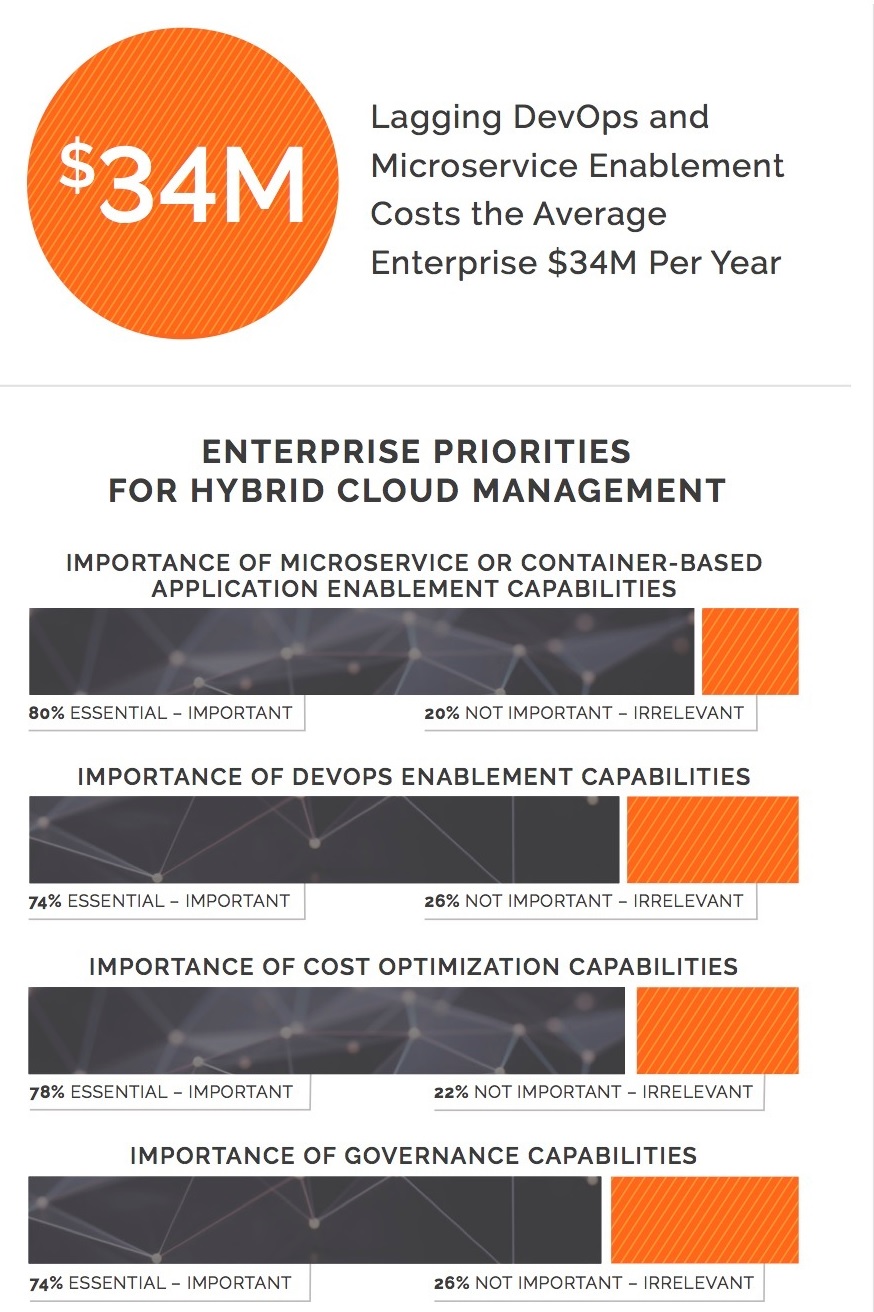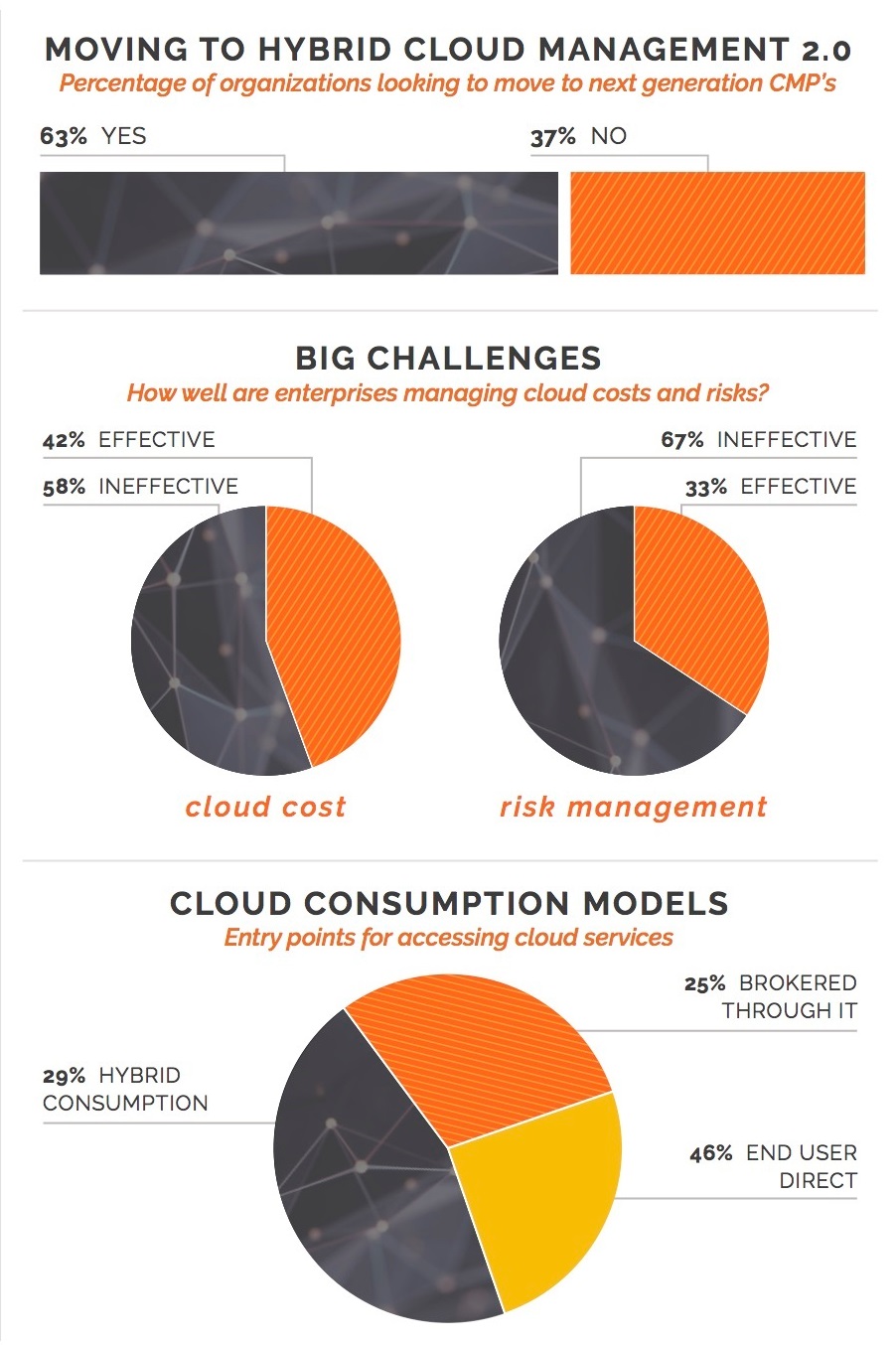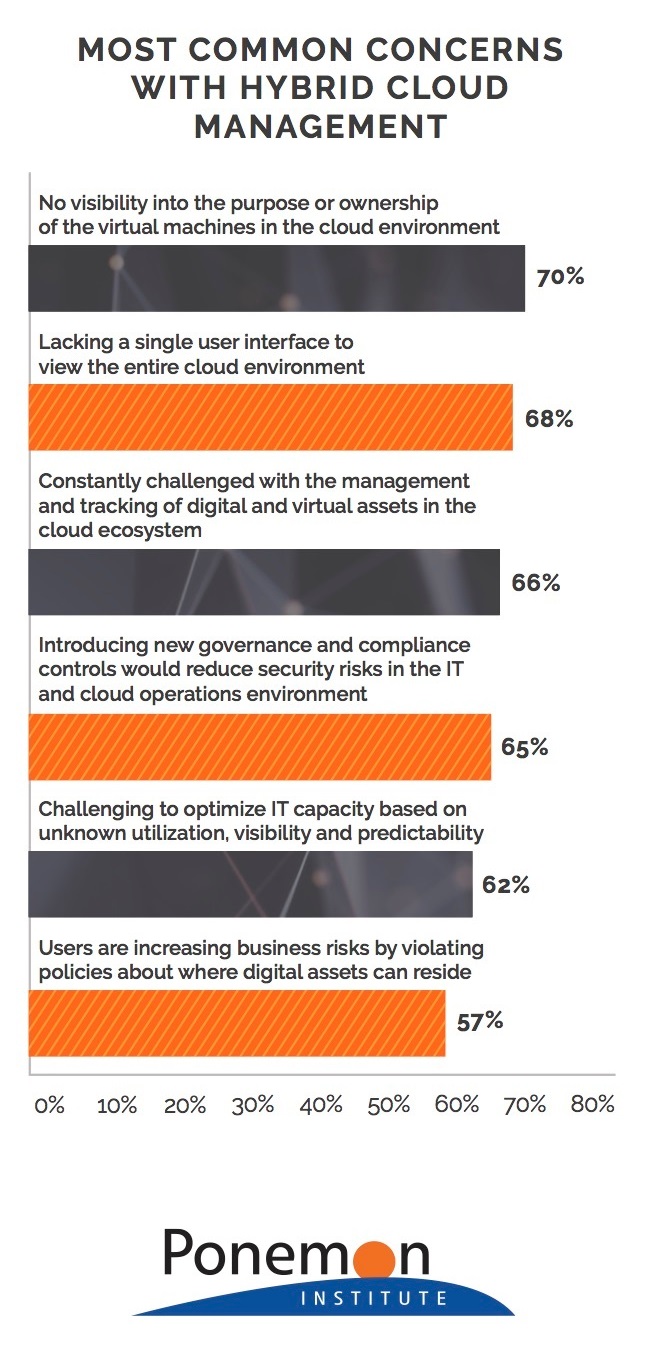mabl announced the addition of mobile application testing to its platform.
Despite the vast majority of cloud management decision-makers believing that DevOps and microservice enablement are important, very few believe that their organizations are capable of delivering them today — a gap that is costing the average enterprise $34 million per year, according to new report from the Ponemon Institute.
The report from the Ponemon Institute, Enterprise Priorities for Hybrid Cloud Management, sponsored by Embotics, found that 74 percent of respondents believe DevOps enablement capabilities are essential, very important or important for their organization, but only 33 percent believe their organization has the ability to deliver those capabilities.
When asked the same questions about microservice and container-based enablement, 80 percent believe capabilities are essential, very important or important but only one in four believe their organization can quickly deliver those capabilities.
Hybrid Cloud Management Challenges
The proliferation of cloud services has helped enterprises reduce costs and become more efficient, but that comes with a price: organizations are struggling with the way employees consume cloud resources. A sizeable 46 percent of respondents said that their organization’s cloud consumption model is “cloud direct,” where end users bypass IT and cloud management technologies to communicate directly to the clouds in question (e.g. AWS or Azure) through native APIs or their own public cloud accounts.
This reliance on cloud-direct consumption can create a complex environment that is difficult to manage or gain visibility into. According to the report, the vast majority of organizations lack sufficient visibility into their cloud environment, creating challenges for enterprises. Research found that:
■ 70 percent of respondents have no visibility into the purpose or ownership of the virtual machines in their cloud environment
■ 68 percent of respondents lack a single user interface to view their entire cloud environment
■ 66 percent of respondents said they are constantly challenged with management and tracking of digital and virtual assets in their cloud ecosystem
■ 65 percent of respondents believe that introducing new governance and compliance controls would reduce security risks
■ 57 percent of respondents believe users are increasing business risk by violating policies about where digital assets can reside
A New Era of Hybrid Cloud Management
To combat the challenges in the cloud market and achieve further flexibility and efficiencies, enterprises are embracing the potential of DevOps. The report found that 71 percent of respondents’ organizations have adopted or are planning to adopt DevOps methodologies.
Furthermore, 61 percent of respondents believe implementing DevOps improves the ability to deliver projects on schedule, 60 percent believe DevOps improves the ability to deliver projects within budget, and 69 percent believe DevOps improves the ability to maintain service quality.
With so many enterprises struggling to deliver enable DevOps and microservices (67 percent and 74 percent, respectively), the report identifies a gap between the capabilities of current cloud management platforms (CMP) and what organizations turning to DevOps need. The report defines current CMP as “solutions providing provisioning, automation, workflow orchestration, self-service, cloud governance, single-pane-of-glass visibility, capacity rightsizing and cost management across public, private and hybrid clouds.”
According to the report, next-generation CMP solutions bring the same benefits as current CMP while also reducing the friction and complexity associated with microservices, containers, cloud-native applications and the adoption of agile DevOps methodologies and seamlessly providing corporate governance and compliance to these environments without impeding development speed and agility.
Based on this description, 63 percent of respondents believe that the ability to deliver next-gen CMP capabilities would reduce hybrid cloud management costs by an average of $34 million per year, or 23 percent of their cloud management budget.
“This research indicates a real disconnect between enterprises’ need and desire to deploy next generation applications using DevOps methodologies and the ability of existing cloud management solutions to support that transition,” said Larry Ponemon, chairman and founder of the Ponemon Institute. “To enable true digital business process transformation, enterprises need to find a way to bridge the gap between the speed and agility developers need and the control and governance required by the IT organization. The report shows that this isn’t happening with current cloud management strategies. ”
Ponemon added that next-gen CMP represents a clear path to bridging that gap, reducing friction between IT and developers, and enabling enterprises to reduce the cost of managing complex cloud environments.




About the Report: The report is based on a survey of more than 600 individuals responsible for cloud management at organizations with an average budget of $147 million for managing hybrid cloud operations.
Industry News
Spectro Cloud announced the achievement of a new Amazon Web Services (AWS) Competency designation.
GitLab announced the general availability of GitLab Duo Chat.
SmartBear announced a new version of its API design and documentation tool, SwaggerHub, integrating Stoplight’s API open source tools.
Red Hat announced updates to Red Hat Trusted Software Supply Chain.
Tricentis announced the latest update to the company’s AI offerings with the launch of Tricentis Copilot, a suite of solutions leveraging generative AI to enhance productivity throughout the entire testing lifecycle.
CIQ launched fully supported, upstream stable kernels for Rocky Linux via the CIQ Enterprise Linux Platform, providing enhanced performance, hardware compatibility and security.
Redgate launched an enterprise version of its database monitoring tool, providing a range of new features to address the challenges of scale and complexity faced by larger organizations.
Snyk announced the expansion of its current partnership with Google Cloud to advance secure code generated by Google Cloud’s generative-AI-powered collaborator service, Gemini Code Assist.
Kong announced the commercial availability of Kong Konnect Dedicated Cloud Gateways on Amazon Web Services (AWS).
Pegasystems announced the general availability of Pega Infinity ’24.1™.
Sylabs announces the launch of a new certification focusing on the Singularity container platform.
OpenText™ announced Cloud Editions (CE) 24.2, including OpenText DevOps Cloud and OpenText™ DevOps Aviator.
Postman announced its acquisition of Orbit, the community growth platform for developer companies.
Check Point® Software Technologies Ltd. announced new email security features that enhance its Check Point Harmony Email & Collaboration portfolio: Patented unified quarantine, DMARC monitoring, archiving, and Smart Banners.




